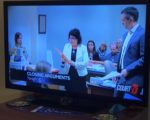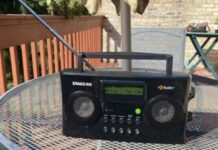As noted on Monday’s Coronavirus INFOCUS podcast, the FCC is humming along as normally as possible, even with much of its staff working from home offices.
As such, you may want to take note of the Commission’s May 2020 broadcast deadlines, conveniently outlined by Washington, D.C. communications law firm Fletcher Heald & Hildreth on Wednesday.
We’ve also included links to RBR+TVBR’s related coverage as it pertains to each item outlined on the calendar:
May 4, 2020: FM Boosters and Hyper-local Broadcasting –
Comments are due with regard to a petition for rulemaking by GeoBroadcast Solutions LLC asking the Commisson to permit radio broadcasters to use single frequency network (SFN) technology to provide hyper-local programming, emergency alerting, and advertising.
FCC Comment Period Opens On ‘Geo-Targeting’ Petition
The FCC is now accepting comments in regard to a petition filed on March 13 by Chicago-based GeoBroadcast Solutions that seeks a rule change permitting radio broadcasters to air “geo-targeted programming” — including emergency alerts, news, and advertising — on a voluntary basis.
Then, there are the TV White Space Device Rules.
Comments are due with regard to the FCC’s NPRM proposing targeted changes to the Part 15 (Radiofrequency devices) white space devices rules in the TV bands (channels 2-35).
Western Governors Approve ‘TV White Space’ Action At FCC
A FCC proposal devoted to “Unlicensed White Space Device Operations in the Television Bands” has gotten the affirmative nod of two governors in the western U.S., as well as the Western Governors’ Association itself. With expanding connectivity a key goal, the governors applauded the FCC’s efforts to improve rural broadband access, calling it “crucial” in achieving those goals.
May 14, 2020
Significantly Viewed Local TV Stations – Comments are due with regard to the FCC’s NPRM examining whether to update the methodology for determining whether a TV broadcast station is “significantly viewed” in a community outside of its local television market and thus may be treated as a local station in that community and permitted under FCC rules to be carried by cable systems and satellite operators.





